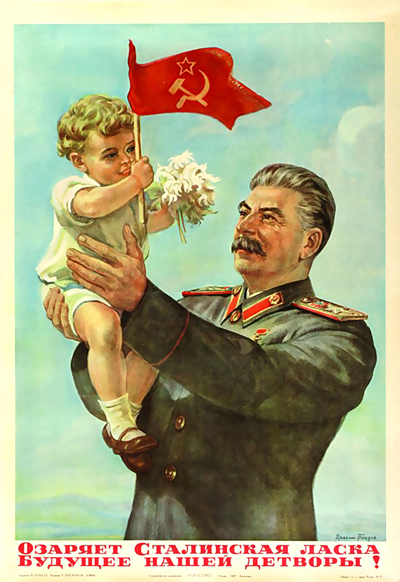We say that Marxism is scientific for various reasons. At the surface level, marxism adapts as new knowledge is discovered and learns from past experiences. It’s not an ideology set in stone like others are.
But first to understand what we mean by marxism I’ll refer to Lenin’s three sources and components of marxism : dialectical materialism, the economic theory (Labour-theory of value namely) and the class struggle. These three together make marxism.
For example if you look at religion (the only example that came to my head, though some people would disagree to call religion an ideology), they have a foundation story: Jesus was born in the year 0, he was the son of God sent to Earth to absolve us of our sins, and that’s the story that founded Christianism. Christians have precepts to follow from a book that was written 2000 years ago and has not changed since then. The way we interpret the Bible has changed (for example in the story about how Jesus heals a blind man, some might say one is not necessarily literally blind in the eyes), but the stories themselves are still the same. The precepts are still the same: follow the ten commandments, and if you’re a protestant it’s important to have a work ethic.
Marxism on the other hand doesn’t have a foundational story. It doesn’t have precepts outside of the three components we saw above. And even then, dialectical materialism doesn’t mean “the world works like this, we interpret this event to mean this and that’s it, you can’t change this”. Dialectical materialism is a way to look at the world and understand what happened and what is happening, but of course it can’t predict the future. We can’t really know who will be elected as president of the USA in 2024 but once we’ll live in 2024 and see the elected candidate, we’ll be able to use dialectical materialism to understand why it happened like it did.
So essentially marxism evolves with the material conditions the people find themselves in. If you’re somewhat familiar with liberalism, our criticism of it is that it was born in a time of high contradictions and sought to resolve only those contradictions. You had the Old Regime – the kings and nobles that kept the serves under their boot – and the upcoming bourgeoisie, who wanted to exploit the serves for themselves. So they had all these great ideas about how everyone is an individual, how everyone is different and has fundamental rights because they were born a human and that is enough to guarantee them some protections.
But then it turns out your unalienable rights are only privilege extended by the bourgeoisie, and certainly the people in the Middle East being bombed by our humanist and liberal politicians don’t seem to have any unalienable rights. So liberalism is prescriptive.
Marxism makes no such claims, it’s merely descriptive. Whether dialectical materialism, the LTV, or the class struggle (and theory of the state), it’s all a description inferred from what marxism actually says. This means in 2000 years, the class struggle will still be applicable (provided we still live in class society by then).
And that’s very scientific. Science obeys to rules. To make a proper scientific experiment, you have to find a control group. You have to record all results no matter if they agree with you or not. An experiment starts with a hypothesis (does this happen if I do that), and then you test it out (with your double blind experiment and everything), and finally you learn from the result (yes, my hypothesis was correct or no, it was incorrect). You look at the world around you and go into the details to understand how exactly things work.
Marxism is very similar. However, there’s one thing we musn’t forget, and it’s that marxism is a way of looking at the world that applies to our current times. It’s very possible that in 200 years, we’ll refine marxism (like how materialism resulted from idealism, and dialectical materialism resulted from metaphysical materialism of the 18th century) even more and call it something else. But it’s doubtful we’ll “go back” to something that existed before marxism, say liberalism. Just like there are no serious feudalists (even monarchists don’t want to go back to feudalism) in the age of liberalism. Because marxism, for our material conditions, answers our questions and is the superior model to explain the world. We’ll see in 200 or 300 years when our material conditions have evolved even more.
In a more precise way we could talk about how materialism is a “reflection” of sorts to science as it grew with it, and idealism is the non-scientific view of the world thriving on our relative ignorance, but I think that’s secondary.
@CriticalResist8@lemmygrad.ml nailed it, and its especially worth reading that Lenin essay they linked, as well as :
I’ll also add that a simple definition for a scientific theory, is something that is :
- Based on observable phenomena
- Makes predictions about the future
- Those predictions are testable / falsifiable
- Those predictions are borne out by observation
All of the core tenets of Marxism: The labor theory of value, the declining rate of proft, surplus value, class struggle, historical materialism, as well as those of Marx’s successors, who applied the Marx’s materialist method to wage successful revolutions and bring millions out of poverty, meet all the criteria above.
I also recommend watching Cockshott - Why the labor theory of value is right to get an idea of how Marx applied the scientific method to human labor time (something that’s conserved like any other scientific principle, no matter how many times bourgeois economists, like priests, tell you value can be created and destroyed in thin air).
Also this video on why the supply-demand curve, the basis for bourgeois economics value theories, is unscientific and unfalsifiable.
Marxism feeds into the broader Classical Economists (Smith, Ricardo, and Keynes among others), which are different to the neoclassical economists. The neoclassical economists had a change in their theories of competition in the late 19th century so that competition was no longer seen as a brutal and gruesome dynamic, but a beautiful dance companies do in favor of the consumer, you. This ideological version of economics is known as “perfect competition”.
Perfect competition can be submitted to empirical tests. You can see whether capitalism leads to common prices, to lower costs, to companies with similar profit rates, etc. But what happens if you don’t find that? Do you start crying out loud “Imperfect competition!” ? You could, but that’s not what Marxism claims. Marxism claims that it is precisely competition that leads to differences in capital intensities (how much people invest in a particular company), differences in cost structures, in the regulation of profit rates, etc. And so it is as simple as testing the assumptions.
You can see how these assumptions are tested in Anwar Shaikh’s text Capitalism. It is a theory of capitalism that heavily draws upon Marxism (as well as the other classical economists I mentioned: Smith, Ricardo, and Keynes). What’s striking is that the Marxist assumptions (as well as the others) are always tested empirically. This is surprising because in my experience as a neoclassical economics student (which is the type of economics that’s taught everywhere except wherever they tell you what type of economics you’re learning —I’m being a bit cheeky here, but I also think I’m being accurate) and having read dozens of economics syllabus and textbooks, the neoclasical economics knowledge community in high school and undergraduate very rarely test the theories they are teaching you against the empirical evidence. Compare that to what you will find if you go to Anwar Shaikh’s website http://realecon.org and check our the free book lectures or the book itself.
There, not only will you find an absurd amount of evidence favoring Marxism (and more broadly the classical theory as well as real competition), but you will find that Marxism has strands that propose views that are very different to what other strands propose. For example, Lenin believed monopoly was capitalism’s future, but Shaikh doesn’t believe that. Nonetheless, you will find that Marxism is much more more empirically grounded than neoclassical theory.
Removed by mod
deleted by creator
Removed by mod
deleted by creator





